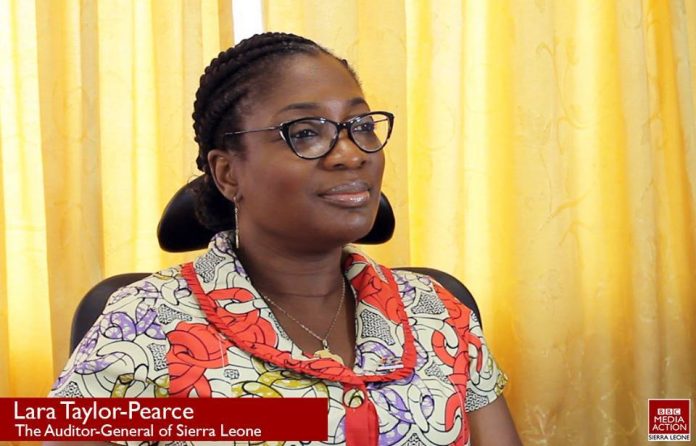By Amin Kef Sesay
A major concern for international aid policy during the last five decades has been to improve the living conditions for the poor in the poorest countries of the world.
In Sierra Leone, the Auditor General’s 2018 and 2019 annual reports clearly showed that despite a change of Government, grand corruption in the public sector still remains a big hindrance to revenue conservation and promotion of economic development and service delivery to the people as huge chunks of public funds still sink into the bottomless pockets of corrupt public officials in MDAs. The public wait to hear in the Auditor General’s 2020 report how far this Government has gone in putting corruption that hinders national development, under control.
Truth is, if the country has been consistently following the IMF and World Bank guidelines on prudent, transparent, accountable public financial management for the past ten years, our economy, contrary to the view of some that they have been ruined by bad IMF, World Bank advices would have been doing well and improving.
To help poor developing countries manage their resources well in order to generate much needed domestic revenue for development purposes, the World Bank, in recent years, supported several international initiatives against grand corruption (state-capture), including the Extractive Industries Transparency Initiative (EITI), the Stolen Asset Recovery Initiative (StAR) and the United Nations Convention against Corruption (UNCAC).
Combined, these initiatives have the potential to improve Government’s transparency and accountability by also addressing the role of international financial centers and multinational companies in facilitating grand corruption.
Generally, if a country has the appropriate ‘infrastructure’ of inquisitive media, opposition parties, and democratic budgeting, then EITI, for instance, could potentially have good effects on building transparency and reducing corruption.
However, in most of the EITI signatory countries where the Bank has provided support considerable needs for institution building still remain.
In particular, reducing corruption and increasing transparency in Government finance depend largely on successful stimulation of domestic political demands for accountability and information and, not least, creation of mechanisms to secure transparency and enforce accountability. Such mechanisms are also required for assets repatriated through the StAR initiative.
Efforts to fight corruption in poor countries like ours require, however, more attention to the role of multinational companies, banks and finance institutions in facilitating corruption and embezzlement of public funds in developing countries. Generally speaking, however, the Governments in poor countries are also the most corrupt.
The level of GDP per capita tends to explain the level of corruption in countries like Sierra Leone where it is still far less than USD800 per head compared to a country like Botswana where it has gone up above USD6000 per head in the last twenty years.
Generally, in explaining the prevalence of corruption in the country’s MDAs, we see that areas which are still complicated or beset with conflicting objectives, such as civil service reform, procurement and reform of the Judiciary, have shown less improvement in implementing reforms aimed at performance improvement.
Thus, linking governance work with visible public service improvements will help greatly to build credibility of the reforms with citizens and donors.




